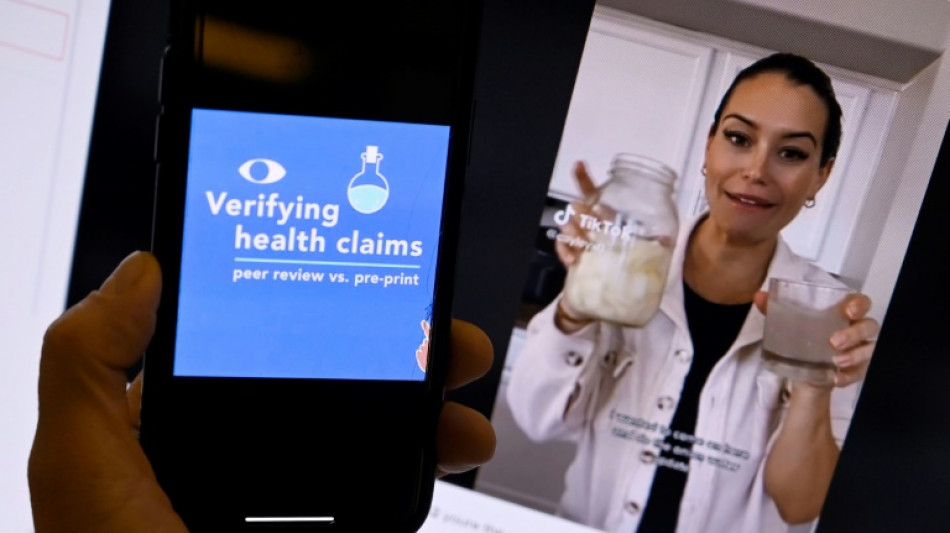
-
 Inter beat Kairat Almaty to maintain Champions League perfection
Inter beat Kairat Almaty to maintain Champions League perfection
-
Newcastle sink Bilbao to extend Champions League winning run

-
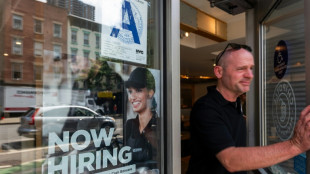 Wall Street stocks rebound after positive jobs data
Wall Street stocks rebound after positive jobs data
-
LPGA, European tour partner with Saudis for new Vegas event

-
 Eyes turn to space to feed power-hungry data centers
Eyes turn to space to feed power-hungry data centers
-
Jazz lose Kessler for season with shoulder injury

-
 League scoring leader Messi among MLS Best XI squad
League scoring leader Messi among MLS Best XI squad
-
MLS bans Suarez for Miami's winner-take-all playoff match

-
 McIlroy appreciates PGA of America apology for Ryder Cup abuse
McIlroy appreciates PGA of America apology for Ryder Cup abuse
-
Garnacho equaliser saves Chelsea in Qarabag draw

-
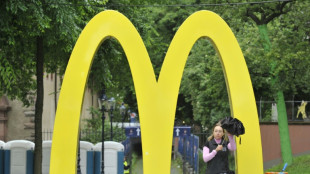 Promotions lift McDonald's sales in tricky consumer market
Promotions lift McDonald's sales in tricky consumer market
-
Five things to know about New York's new mayor

-
 Anisimova beats Swiatek to reach WTA Finals last four
Anisimova beats Swiatek to reach WTA Finals last four
-
US Supreme Court appears skeptical of Trump tariff legality
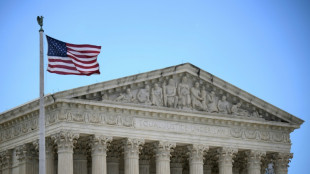
-
 AC Milan post third straight annual profit on day of San Siro purchase
AC Milan post third straight annual profit on day of San Siro purchase
-
Angelina Jolie visits Ukrainian frontline city, media reports say
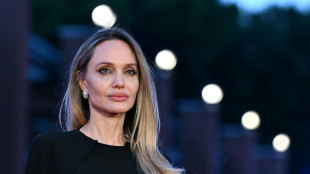
-
 UN says forests should form key plank of COP30
UN says forests should form key plank of COP30
-
Star designer Rousteing quits fashion group Balmain

-
 Mexico's Sheinbaum steps up cartel fight after murder of anti-narco mayor
Mexico's Sheinbaum steps up cartel fight after murder of anti-narco mayor
-
Attack on funeral in Sudan's Kordofan region kills 40: UN

-
 Key PSG trio set for spell on sidelines
Key PSG trio set for spell on sidelines
-
Democrats punch back in US elections - and see hope for 2026

-
 BMW reports rising profitability, shares jump
BMW reports rising profitability, shares jump
-
Bolivia Supreme Court orders release of jailed ex-president Jeanine Anez
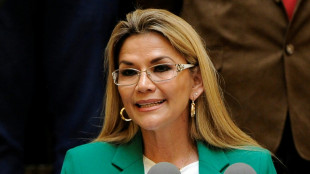
-
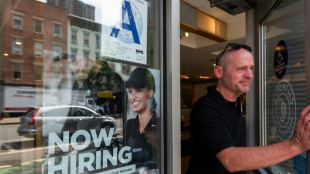 Wall Street stocks rise after positive jobs data
Wall Street stocks rise after positive jobs data
-
'Hostage diplomacy': longstanding Iran tactic presenting dilemma for West
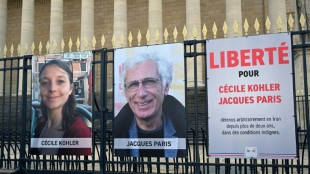
-
 Rybakina stays perfect at WTA Finals with win over alternate Alexandrova
Rybakina stays perfect at WTA Finals with win over alternate Alexandrova
-
Le Garrec welcomes Dupont help in training for Springboks showdown

-
 Brussels wants high-speed rail linking EU capitals by 2040
Brussels wants high-speed rail linking EU capitals by 2040
-
Swiss business chiefs met Trump on tariffs: Bern
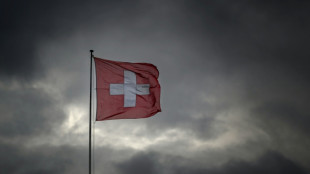
-
 Spain's exiled king recounts history, scandals in wistful memoir
Spain's exiled king recounts history, scandals in wistful memoir
-
Wall Street stocks steady after positive jobs data
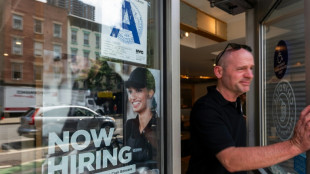
-
 Trump blasts Democrats as government shutdown becomes longest ever
Trump blasts Democrats as government shutdown becomes longest ever
-
Indian pilgrims find 'warm welcome' in Pakistan despite tensions

-
 Inter and AC Milan complete purchase of San Siro
Inter and AC Milan complete purchase of San Siro
-
Swedish authorities inspect worksite conditions at steel startup Stegra

-
 Keys withdraws from WTA Finals with illness
Keys withdraws from WTA Finals with illness
-
Prince Harry says proud to be British despite new life in US

-
 EU strikes last-ditch deal on climate targets as COP30 looms
EU strikes last-ditch deal on climate targets as COP30 looms
-
Stocks retreat as tech bubble fears grow

-
 Shein opens first permanent store amid heavy police presence
Shein opens first permanent store amid heavy police presence
-
West Indies edge New Zealand despite Santner brilliance

-
 French pair released by Iran await return home
French pair released by Iran await return home
-
German factory orders up but outlook still muted

-
 Death toll tops 100 as Philippines digs out after typhoon
Death toll tops 100 as Philippines digs out after typhoon
-
Attack on key city in Sudan's Kordofan region kills 40: UN

-
 'No one could stop it': Sudanese describe mass rapes while fleeing El-Fasher
'No one could stop it': Sudanese describe mass rapes while fleeing El-Fasher
-
Champagne and cheers across New York as Mamdani soars to victory

-
 Medieval tower collapse adds to Italy's workplace toll
Medieval tower collapse adds to Italy's workplace toll
-
BMW boosts profitability despite China, tariff woes


Waste of tears -- fake 'onion water' flu cure exposes disparities
If it tastes this bad, it must be good for you?
Homemade, tear-inducingly strong onion "cures" for flu are the latest medical misinformation spreading on TikTok -- a sign, analysts say, that affordable, evidence-based health care is beyond the reach of many Americans.
Videos extolling the pungent concoction –- made by soaking chopped raw onions in water –- as a miracle cure have garnered tens of millions of views on the influential app despite no scientific proof to support the claim.
The videos have gained traction as the United States faces a so-called "tripledemic" of influenza, Covid-19 and RSV that has put a strain on health services.
Onions in reasonable quantities are not considered harmful –- except for the foul breath –- but health experts warn that such videos promoted a blind belief in simple home remedies that could compromise public health.
"Onions aren't going to hurt anybody, but if somebody is sick, they should seek actual medical attention," Katrine Wallace, an epidemiologist and assistant professor at the University of Illinois Chicago, told AFP.
"I am afraid that people will just drink onions and not seek medical care (and) they could spread Covid or the flu in the community."
The pseudoscience has found many takers, with comments under the videos filled with declarations like "this worked for me!"
That, Wallace said, suggested the so-called "placebo effect," with the dubious onion treatment getting the credit after the virus naturally ran its course.
- Miracle cure? No -
The trend illustrates how TikTok is flooded with unqualified influencers who peddle misinformation, from vaccine and abortion-related falsehoods to health myths –- often to boost engagement and views -- in what experts say can have a serious impact on medical decisions.
In one of the most popular TikTok videos, which garnered over 2.5 million views, one woman -- whose profile did not mention her qualifications and described her only as a "child of mother nature" -- zealously promoted onion water.
For greater healing effects, she implored her viewers to ferment the concoction for hours to make it more "potent."
"We love a miracle cure and for some reason we seem to think that the more painful a remedy is to consume, the more magic it will work," Abbie Richards, a disinformation researcher and fellow with the Accelerationism Research Consortium, told AFP.
"Simple solutions for complex problems frequently perform well in engagement-driven algorithms like TikTok's. Particularly when those solutions are cheap and accessible in areas where evidence-based healthcare is not."
A TikTok spokesman told AFP the platform removes content that qualifies as medical misinformation that is "likely to cause significant harm."
The onion water videos, he added, did not cross that threshold of "significant harm" and were therefore left untouched.
- Millions without medical insurance -
That approach, many experts say, underscores the challenge facing social media platforms of finding ways to eliminate misinformation without giving users the impression that they were trampling on free speech.
Richards cautioned that "excessive moderation" in the case of onion water videos could backfire and "encourage narratives that the truth of affordable medicine is being intentionally hidden."
A more effective approach, she said, would be for TikTok to ensure accurate health information is "available, accessible, and engaging."
"Whether TikTok should take down videos about benign but useless remedies, that's not for me to say," Valerie Pavilonis, an analyst at the misinformation watchdog NewsGuard, told AFP.
"Still, even if a supposed remedy like drinking onion water to solve sinus problems doesn't directly hurt you, it could make you wrongly think that you are treating the problem."
The popularity of the videos reflected what Richards called "systemic failures" in health care.
In a country with expensive medical care, data from the Center for Disease Control and Prevention shows roughly 30 million Americans, or nine percent of the population, have no health insurance.
Millions of other Americans are "underinsured", with their coverage not providing them affordable healthcare, according to the nonprofit Commonwealth Fund.
"It's very easy for us to say: 'Remember to talk to your doctor about medical treatments,'" Richards said.
"But I would expect that a society with limited access to health care, an overburdened health care system, and a generally confused approach to the newest wave in illness, might start drinking onion water or putting garlic in their ears."
I.Meyer--BTB




